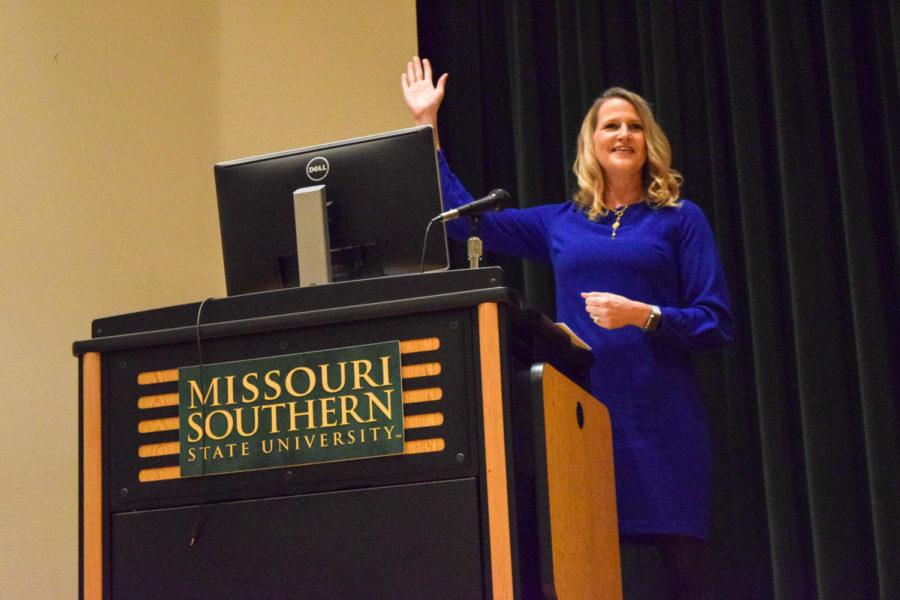Pulitzer Prize winner visits Southern
Colleen McCain Nelson discussing her travels with Hillary Clinton in Webster Hall’s Corley Auditorium on March 10.
Pulitzer Prize winning journalist Colleen McCain Nelson visited Missouri Southern to speak to college students and faculty about the ins and outs of covering politics in her presentation titled: “Politics and the Press: Testing the Trump Playbook in 2020.”
The event took place in Webster Hall’s Corley Auditorium March 10, which so happens to be Missouri’s primary day. An estimated 90 people came to hear Nelson speak.
Highlights of the talk centered on Nelson’s interactions with Barack Obama, Joe Biden, Hillary Clinton and Donald Trump as a White House correspondent and her travels covering campaigns.
She compared notes on how presidential administrations and campaigns over the past 16 years have treated the press. Nelson told many stories of her adventures.
One of the stories that garnered the most reactions from the audience was when Nelson received a surprise phone call from then-presidential candidate Donald Trump, who asked to clarify accusations made by the Clintons in 2016.
Nelson explained that the house call from Trump was a smart tactic to talk to reporters on his terms so he could drive the conversation. Not a minute after the phone call with Nelson, Trump was onstage talking to a crowd at one of his rallies.
Nelson noted his nickname for her.
“At the end of the phone call, he called me honey–because, of course he did,” said Nelson.
Nelson also shared her involvement in the Clinton email hacking scandal that impacted the last election cycle. Her email to Clinton’s campaign manager John Podesta was released with hundreds of other leaked emails. Nelson explained that the email was merely a thank you note that was spun into “fake news” and shared on all corners of the internet.
The backlash for her interaction with Podesta was severe. She received death threats and racist items were mailed to her house in an attempt to frighten her.
“It never made me not want to do the work,” said Nelson.
The overall presentation explored the playbook by which President Trump uses in regard to the media and how vastly different it is from other politicians.
“We will be studying the Donald Trump method for hundreds of years,” said Nelson.
At the end of her presentation, students and faculty asked questions regarding our current political landscape, the role of social media and the effects of bullying online. Nelson left the audience thinking about how things may play out in the general election in November.
“This year will test the question: will Trump’s playbook work a second time?” said Nelson.
Your donation will support the student journalists of Missouri Southern State University. Your contribution will allow us to purchase equipment and cover our annual website hosting costs.




















